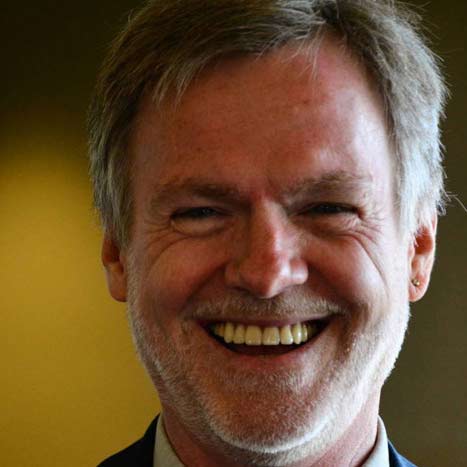English
Concise meets precise
Anyone translating from German into English or vice-versa will quickly realize that it involves more than just juggling two different languages , but also very different lengths of text. Wilhelm Weigert (51), philologist with over 25 years of professional experience in translation and localization, has a good example here: “The question ‘How to innovate an innovation averse industry?’ simply cannot be put this concisely in German. Instead the German wording would be roughly equivalent to: ‘How does one give impetus to an industry that is sluggish in its innovation?’”
German is usually 20% longer.
'On average an English translation will be 20% shorter than its German source,' says Dr Dr Rűdiger Marcus Flaig, sworn translator authorised by the Regional Court of Munich. This factor needs to be considered if the layout is defined or there is only limited space available for software translations.
But of course the wordiness is not the only difference between these languages. Professional translators describe English as succinct, elegant, frequently stripped to the bare essentials, other times pompous, imprecise and requiring interpretation. So how does German fare in a direct comparison? Obsessed with detail, exact, sometimes elaborately constructed, but generally more reserved in tone, occasionally a touch verbose.
The challenge: cutting to the core of the English sentence
In many cases professional translators will mutate into text editors to prevent the German translation spilling over ; they will be familiar with tricks and techniques to pare down the German and to tease out the essence of the English sentence – without discarding essential content. This calls for experience, interpretation, linguistic dexterity and imagination. So sometimes “it will be necessary to do without a slavishly faithful translation” if space for the German text is limited. What counts is that the translation still communicates the underlying idea of the text”, says translator Weigert.
Many terms simply have no direct equivalent.
Moreover, many peculiarities of the German language that are unheard of in English impede a direct translation: for instance the cases (‘der’, ‘die’, ‘das’), the informal and formal manners of address or the German phraseology in which verbs following a conjunction like ‘as’ or ‘because’ are banished to behind the object. Translators also need practice, skill and a deft feel for language to handle linguistic imponderables in the form of compound nouns such as ‘Kraftfahrzeughaftpflichtversicherung’ (third party vehicle insurance). This applies equally to specifically German terms. A direct English translation simply does not exist for ‘Krankenkasse’ (health insurance provider)‚ Bildungsurlaub (educational leave) or ‘Pflegeversicherung’ (nursing care insurance). “These terms have to be explained”, says Darrel Knutson, an American living in Germany who has worked as a translator for over 20 years.
“Not all valves are the same”
English can be a tricky business too: Some words for instance, such as ‘set’ or ‘slot’, have dozens of potential German translations . “This requires specific understanding, experience and knowledge of the relevant technical language”, says translator Flaig. His colleague Weigert concurs: “You need experience and relevant expertise to find the right term for each product in any industry. “Not all valves are the same.” Avoiding anglicisms when translating from English also requires a keen sense of language, Weigert explains: “This separates the wheat from the chaff : A good translator would never use ‘die Bedürfnisse Ihrer Kunden adressieren’ for ‘to address the needs of your customers’ or ‘für weitere Informationen sehen Sie’ as equivalent to ‘for further information please see’.”
English – German, German – English: a well-beaten track in the global economy
Our translators are aware of their responsibility. After all, one of the busiest trade routes in the global economy runs straight between English and German as a kind of linguistic highway. It transports everything from detailed manuals to websites for international companies, financial services, surveys, company magazines, product catalogues, research papers, contracts, marketing texts and localization projects for software, computer games or smartphone apps. Altogether it makes smooth communication between the industrial hub of Germany and the global English-speaking community truly imperative. Whether import or export: “A first-rate translation has to accompany products from all industries as they are introduced to the market”, says translator Knutson. And that is a job for real language professionals.

Darrel Knutson
Darrel Knutson was born and raised in the USA and today lives with his wife close to Hamburg. He has worked as a professional IT translator for English and German for around 20 years.
